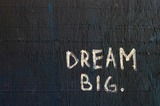
Attribution: College Matchpoint.
- Subject:
- Higher Education
- Material Type:
- Reading
- Author:
- Aujalee Moore
- Date Added:
- 05/20/2024

Attribution: College Matchpoint.
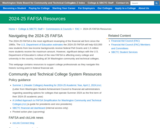
The 2024-25 FAFSA is the most significant revamping of the financial aid form since the 1980s. The U.S. Department of Education estimates the 2024-25 FAFSA will help 610,000 new students from low-income backgrounds receive federal Pell Grants and 1.5 million more students receive the maximum amount. However, significant delays with the U.S. Department of Education's rollout of the new FAFSA is affecting every college and university in the country, including all 34 Washington community and technical colleges.
This webpage contains resources to support college professionals as they navigate this historic turning point in federal financial aid.
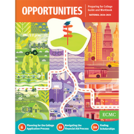
This free college-planning publication provides students and families with important information and tools to guide their pursuit of postsecondary education. Opportunities guides are available in English and Spanish. The state-specific booklets are the same as the national booklets with the addition of state-specific information on colleges, financial aid and resources.
This is an annual resource and is updated and printed each year.
For more information about this and related resources, visit https://www.ecmc.org/studentseducators/student-resources/opportunities-guide-and-workbook
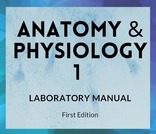
Laboratory manual for undergraduate Anatomy & Physiology 1
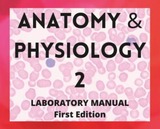
Laboratory manual for undergraduate Anatomy & Physiology 2

Teaching and learning resources for A&P 2. Please check back as I intend to add more.

Online OER text created for First Year Experience (FYE) Career Exploration by Denise Dufek for Bay College.
© 2017 Bay College and Content Creators. Except where otherwise noted this work is licensed under the Creative Commons Attribution 4.0 International License. To view a copy of this license, visit http://creativecommons.org/licenses/by/4.0/.
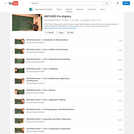
A series of 63 instructional videos from MATH085 - Pre-Algebra created by Jim Helmer for Bay College.
© 2017 Bay College and Content Creators. Except where otherwise noted this work is licensed under the Creative Commons Attribution 4.0 International License. To view a copy of this license, visit http://creativecommons.org/licenses/by/4.0/.

Every day, teachers make thousands of decisions: what content to teach, what activities to assign, who to call on, how to respond to a student question, how to react to student behavior. These day-to-day decisions can have an enormous effect on the lives of young people, for good and ill. They can open new doors or cause lasting harm; they can make students feel seen and valued, or dampen their interest in school. In this course, we will investigate these interactions, rehearse responding to difficult scenarios, and develop a set of equity teaching mindsets and practices to support all of our learners, especially underserved students.
With colleagues from your school or organization and online learners around the world, you will participate in four cycles of inquiry, practice, and action, and then complete a final action project. In each cycle of inquiry, you will examine and re-examine dimensions of inequality through educator mindsets, imagine community change through documentary case studies, rehearse taking action in thorny situations through digital practice spaces, and begin to lead change through action-oriented assignments. Our early investigations will focus on relationships and interactions with individual students, and pan out to examine the effects of bias on classrooms, schools, and communities. As you complete activities with peers online, you will develop a rich set of resources and exercises to use with your students and colleagues in your local context.
At the end of the course, you will have a better understanding of yourself and your students, new resources to draw on for helping all students thrive, and a plan to work with your school community to advance the lifelong work of equitable teaching.
This course is part of the Open Learning Library, which is free to use. You have the option to sign up and enroll in the course if you want to track your progress, or you can view and use all the materials without enrolling.
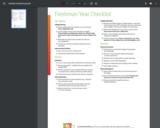
As you plan and prepare for college, these checklists will help keep you on track throughout the process. The checklists highlight important aspects to focus on during each season of the year, including tips for both money and time management, and college and career planning.
For more information about this and related resources, visit https://www.ecmc.org/studentseducators/student-resources/opportunities-guide-and-workbook
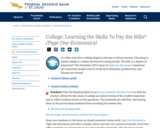
It's often said that a college degree is the key to future success. Choosing to attend college is a major decision for young people. But why is a degree so important? The December 2015 issue of Page One Economics examines two economic models used to study how education, productivity, and income are related.

As college freshmen transition into the higher education arena, student life becomes increasingly heavy and complex with work, academic, social, athletic, and other demands that can be difficult to manage. Depending on the number of courses a student is taking in the semester, there will be competing priorities depending on each classroom's expectations and assignments to be completed. Helping students to learn how to plan and prioritize their commitments is a critical lesson. Through the guidance of their instructor, students will learn time management skills by thinking about time-wasting behaviors that contribute to the inability to manage time effectively.

As college freshmen transition into the higher education arena, student life becomes increasingly heavy and complex with work, academic, social, athletic, and other demands that can be difficult to manage. Depending on the semester schedule, there will be competing priorities depending on each classroom's expectations and assignments to be completed. Helping students learn how to plan and prioritize their commitments is a critical lesson. Through this lesson, students will learn time management skills and think about time-wasting behaviors and interruptions that contribute to their inability to manage time effectively.

Choosing a place of higher education is no easy task. With so many options, it can be hard to narrow down choices. Beyond that, many students do not even know where to start. Use this project as a tool to help students learn where to access helpful information when it comes to choosing the best fit for them. Also, this project can be used to reinforce research skills.
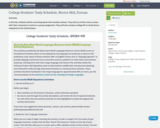
In this lab, students will be conversing about their weekly routines. They will try to find a time to meet with their classmates to work on a group assignment. They will also compare college life in South Korea compared to the United States.
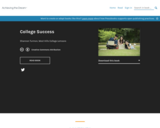
Textbook by Shannon Turmon, West Hills College Lemoore
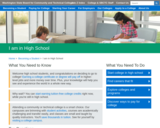
I am in High School; what do I need to know for college or post-secondary education?
This resource is from Washington but contains relevant links for Oregon and Idaho students.

Deciding on attending college is a big decision. What college should I attend? Can I afford college? Can I succeed without college? Use this KQED collection to help inform your decision on whether college is the right path.
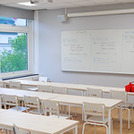
This lesson is designed for high school students to learn to use available resources to assist in their college and career search.
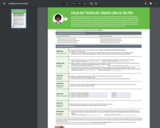
La creación de una ID de FSA es el primer paso para completar la Solicitud Gratuita de Ayuda Federal para Estudiantes (FAFSA) en línea, que es la forma más rápida y fácil de presentar la solicitud. Cada estudiante y al menos uno de los padres deben tener una ID de FSA única para firmar electrónicamente la FAFSA. El nombre de usuario y la contraseña de ID de FSA se usan para firmar electrónicamente la FAFSA y otros documentos
importantes para la ayuda financiera. También le permite acceder a su cuenta en línea de la Ayuda Federal para Estudiantes (FSA). Utilice esta hoja de trabajo para ayudarle a crear una ID de FSA.
For more information about this and related resources, visit https://www.ecmc.org/studentseducators/student-resources/opportunities-guide-and-workbook